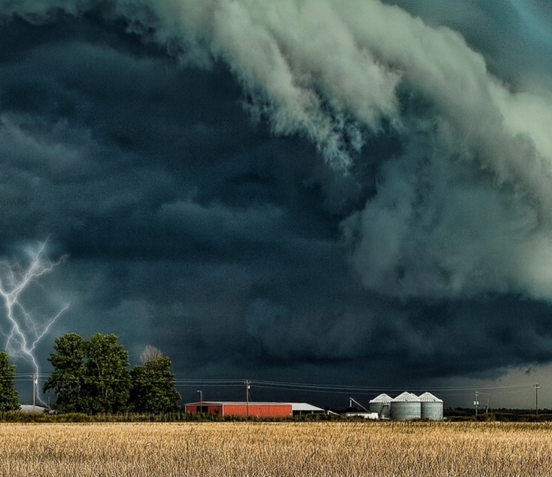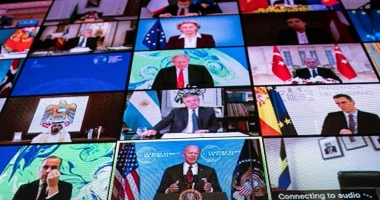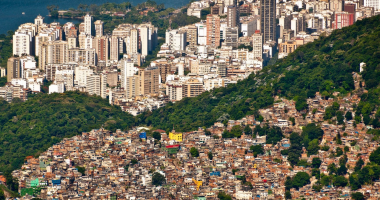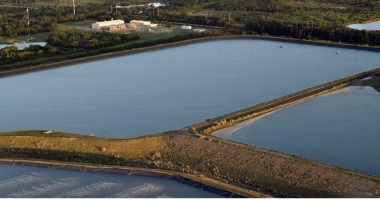Climate, Health and Equity Brief
The farm lobby, NASA and banks step up
December 4, 2020

The Climate, Health & Equity Brief is GMMB’s take on the week’s news on the current impacts of climate change. If you haven’t subscribed yet, you can do so by clicking here.
Hot Topic: Climate action. Following a year of unprecedented wildfires, hurricanes and heat waves, new commitments announced this week indicate a shift toward climate action across multiple sectors. First, the American Farm Bureau Federation, the country’s largest and most influential agriculture lobbying group, joined an alliance of food, forest, farming and environmental groups focused on tackling climate change. This alliance will work alongside Congress and the incoming Biden administration to reduce the food system’s role in emitting harmful greenhouse gases, of which the U.S. farming industry accounts for an estimated 10.5 percent each year.
Though the Farm Bureau has historically attempted to block environmental legislation, this commitment reflects the dramatically increasing impacts of climate change on agriculture: warming temperatures fuel drought, alter weather patterns and increase the frequency and severity of extreme weather events, which in turn decrease crop yields, and destroy harvests and threaten livelihoods.
In the public sector, NASA and the European Space Agency partnered to launch a satellite last week that will track global sea level rise once in orbit. The satellite will provide the most accurate sea level data yet, and it will allow scientists to better forecast the weather, track hurricane activity and develop climate models to inform resilience efforts. And in New Zealand, Prime Minister Jacinda Ardern declared a climate emergency this week, calling on the nation’s people to help secure a safe and healthy future for coming generations. While the declaration is largely symbolic, she also announced a requirement that all public-sector organizations in the country become carbon neutral by 2025 and committed that the government’s existing fleet will be replaced by electric or hybrid vehicles on the same timeline.
And more corporations are stepping up to the plate. In the U.S., Bank of America has promised it will not finance projects for oil and gas exploration in the Arctic National Wildlife Refuge, following similar commitments from all other major banks in the country. And in Europe, major utility company Enel announced an $83 billion investment to expand its solar and wind capacity over the coming decade, a move that will place it among the largest renewable energy producers in the world. With 2020’s climate catastrophes barely behind us, continued climate action in all sectors must be a priority to ensure a safer, healthier 2021 and beyond.
—Matt & Traci, GMMB
Health
A new report found that in 2018, extreme heat led to the deaths of 300,000 people over the age of 65, a 54 percent increase over the past two decades that scientists warn will continue to surge as global temperatures rise. (Reuters)
Hurricane-force have sparked the Bond Fire in California’s Orange County, extending the state’s worst-ever wildfire season into the winter with high winds and persisting drought expected to exacerbate fire spread. (The Washington Post)
A new analysis found that the nation’s EPA-run network of 3,900 air quality index monitoring devices routinely fails to detect major toxic releases and pollution hazards, including 10 of the biggest U.S. refinery explosions over the past decade. (Reuters)
Equity
A new study revealed that the number of affordable housing units vulnerable to coastal flooding will triple by mid-century due to a lack of climate resilience funding in low-income and minority communities. (The Guardian)
After decades of building polluting power plants in communities of color without regard for their public health effects, oil and gas companies are now resisting a clean energy transition by claiming that the cost will harm people of color. (The Los Angeles Times)
Native American tribes across the U.S. are developing advanced climate mitigation strategies guided by science and culture to battle increasing risks to their land, food and water supplies. (The Washington Post)
A new report found that the U.S. has an obligation to support climate adaptation and decarbonization efforts in poor and developing countries based on its historical contribution to global greenhouse gas emissions and its financial capacity. (The New Yorker)
Politics & Economy
A new analysis forecasts that climate-fueled flooding could cause the next mortgage crisis as the federal government continues to provide mortgages for homes that face rapidly increasing flood risks due to extreme weather and rising sea levels. (Politico)
Following environmental protection rollbacks under the Jair Bolsonaro administration, deforestation in the Brazilian Amazon has surged to an alarming 12-year high, with an area a third of the size of Belgium destroyed between August 2019 and July 2020. (CNN)
Action
New Zealand officially declared a climate emergency this week, with Prime Minister Jacinda Ardern announcing that all public-sector organizations must become carbon neutral by 2025. (Bloomberg)
A recently launched NASA satellite will track global sea level rise over the next five and half years and provide data to improve weather forecasting, hurricane tracking and climate models. (CNN)
Bank of America has pledged not to finance Arctic National Wildlife Refuge drilling, joining all other major U.S. banks who have made similar pledges earlier this year. (Bloomberg)
Despite its history of resisting climate legislation, the American Farm Bureau Federation has joined a new Food and Agriculture Climate Alliance that will work with Congress and the incoming Biden administration to reduce emissions from food production. (Inside Climate News)
Europe’s largest utility company, Enel, has pledged $83 billion to expand its wind and solar capacity over the coming decade and become one of the world’s largest renewable energy producers. (The Wall Street Journal)
Kicker
Worried about waste generated by discarded PPE? Check out this Indian entrepreneur turning unwanted masks and protective gear into building-ready bricks.
“Human activities are at the root of our descent toward [climate] chaos. But that means human action can help to solve it.”
– UN Secretary General António Guterres

)





